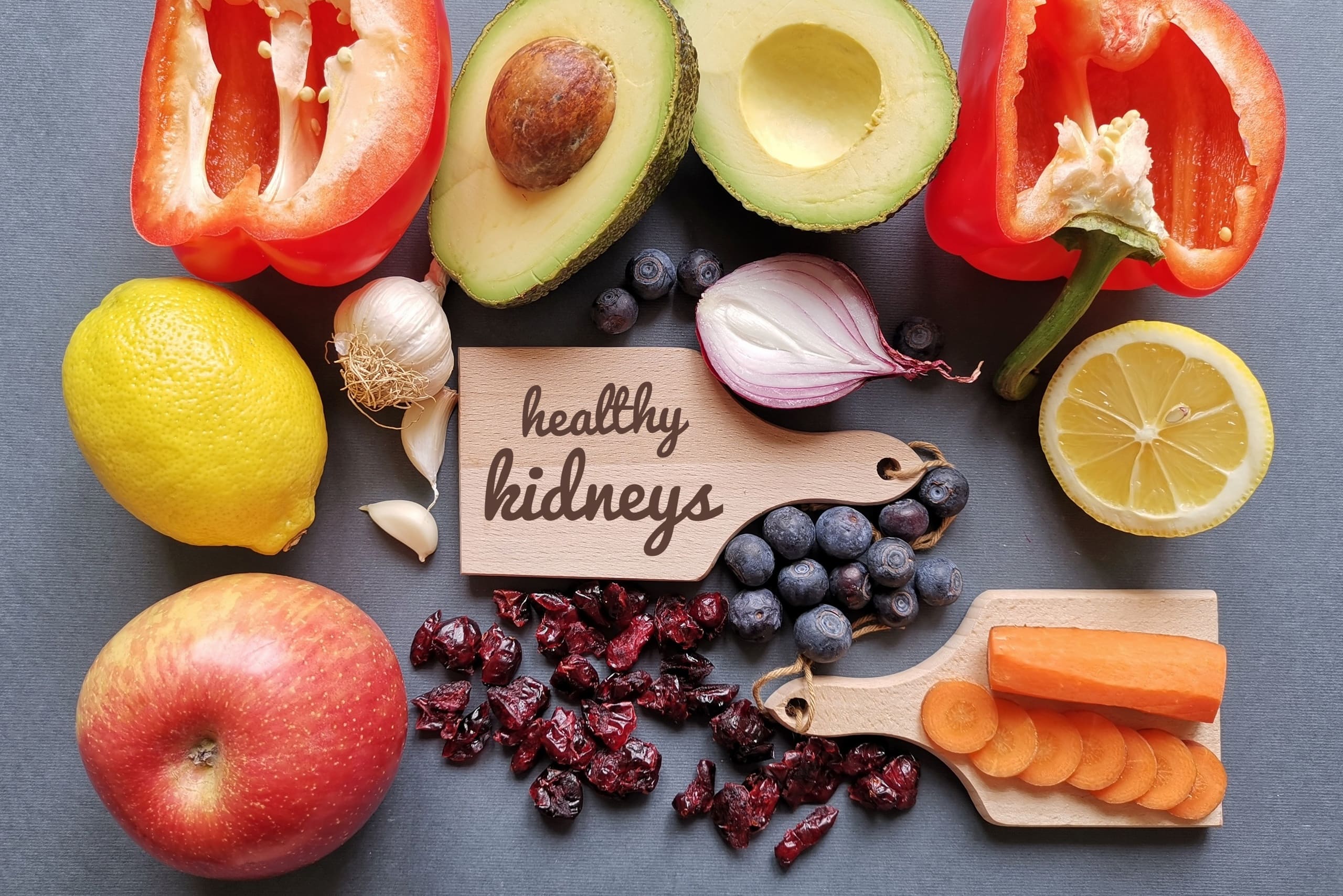Your kidneys are vital organs that filter waste and excess fluid from the blood, maintain your electrolyte balance, and release hormones that regulate your blood pressure. Chronic kidney disease, or CKD, is a progressive condition that can impact your kidney function, leaving your health at risk. Dr. Kanu and his patient-centered team at Texas Kidney Partners have put together a guide outlining renal nutrition guidelines to protect your kidneys and preserve their function, safeguarding your health.
Renal Nutrition for Supporting Your Kidney Health
Patients with chronic kidney disease require a specialized diet to support their long-term kidney health. The following are examples of foods that can help nourish your kidneys, reduce inflammation, support kidney function, and prevent or slow the progression of chronic kidney disease:
- Low Potassium Fruits: Apples, berries (strawberries, blueberries, blackberries, and raspberries), pears, peaches, plums, watermelon, and cranberries are beneficial as they are lower in potassium compared to fruit like bananas and oranges.
- Cruciferous Vegetables: Cauliflower, cabbage, and broccoli not only provide essential nutrients, but they also contain certain compounds that help the liver neutralize toxic substances that may harm the kidneys.
- High-quality Protein: Fatty fish, egg whites, skinless chicken, tofu, and low to no-fat yogurt eaten in moderation or as recommended by Dr. Kanu provide high-quality protein sources that support your kidney health.
- Whole Grains: Brown rice, barley, quinoa, oats, and whole wheat bread are good sources of energy and fiber without overloading the body with unhealthy fats.
- Healthy Fats: Incorporate sources of healthy fats like olive oil and flax seeds, which are beneficial for cardiovascular health and can decrease inflammation.
The following are foods we may recommend limiting to prevent further stress or damage to your kidneys:
- High-Potassium Foods: Depending on your unique needs, we may recommend limiting high-potassium foods like bananas, oranges, cantaloupe, honeydew, raisins, prunes, avocados, tomatoes, spinach, broccoli, chocolate, dairy products, and salt substitutes.
- High-Sodium Foods: Sodium can elevate your blood pressure and increase fluid retention, which can impact your kidney health. Foods high in sodium may include fast foods, frozen meals, canned goods, salty snacks, pickles, ketchup, soy sauce, bacon, sausage, deli meats, and other processed foods.
- High-Phosphorus Foods: Phosphorus buildup in your blood due to impaired kidney function can lead to a host of complications, including weak bones, joint pain, and heart disease. Foods rich in phosphorus include milk, cheese, yogurt, red meat, dried beans, certain nuts and seeds, some types of bottled drinks, and processed foods.
- Other Considerations: Dr. Kanu may recommend restricting protein intake, especially in the later stages of CKD. He may also recommend limiting your fluid intake, depending on your unique concerns.
Practical Tips for Implementing a Kidney-Friendly Diet
The following are some tips to help you make healthier, kidney-friendly food choices:
- Choose Fresh Over Processed: Opt for fresh fruits and vegetables over canned or processed options, which can contain added sodium and preservatives.
- Opt for Home-Cooked Meals: Cooking your meals at home allows you to control the ingredients and avoid hidden salts and phosphates that are often found in restaurant meals and fast foods.
- Read Labels Carefully: Check food labels for their sodium, potassium, and phosphorus content, especially in packaged and processed foods.
- Control Your Portions: Eating in moderation is just as important as your kidney-healthy food choices, so you may want to keep measuring cups or a kitchen scale on hand to keep your portions in check.
- Stay Hydrated: Staying hydrated helps support your kidney health, so it’s important to follow Dr. Kanu’s recommendations to ensure adequate fluid intake.
- Plan Ahead: Preparing kidney-friendly meals ahead of time makes it easier to eat well during a busy week.
Disclaimer: The food lists and recommendations are not exhaustive and may vary from patient to patient. Dr. Kanu and his team at Texas Kidney Partners will work closely with you and recommend the ideal diet to support your kidney health, depending on your unique needs. Our goal is to slow the progression of kidney disease and enhance your health and quality of life.
Personalized Renal Nutrition Recommendations Near Me in McKinney, TX
Maintaining a renal-friendly diet can support your kidney health, enhancing your overall well-being and your quality of life. Dr. Kanu and his team at Texas Kidney Partners are happy to offer personalized care and guidance to keep your kidneys as healthy as possible for as long as possible. Contact us at 469-613-2343 to schedule a consultation, or complete our online form to request an appointment today!

